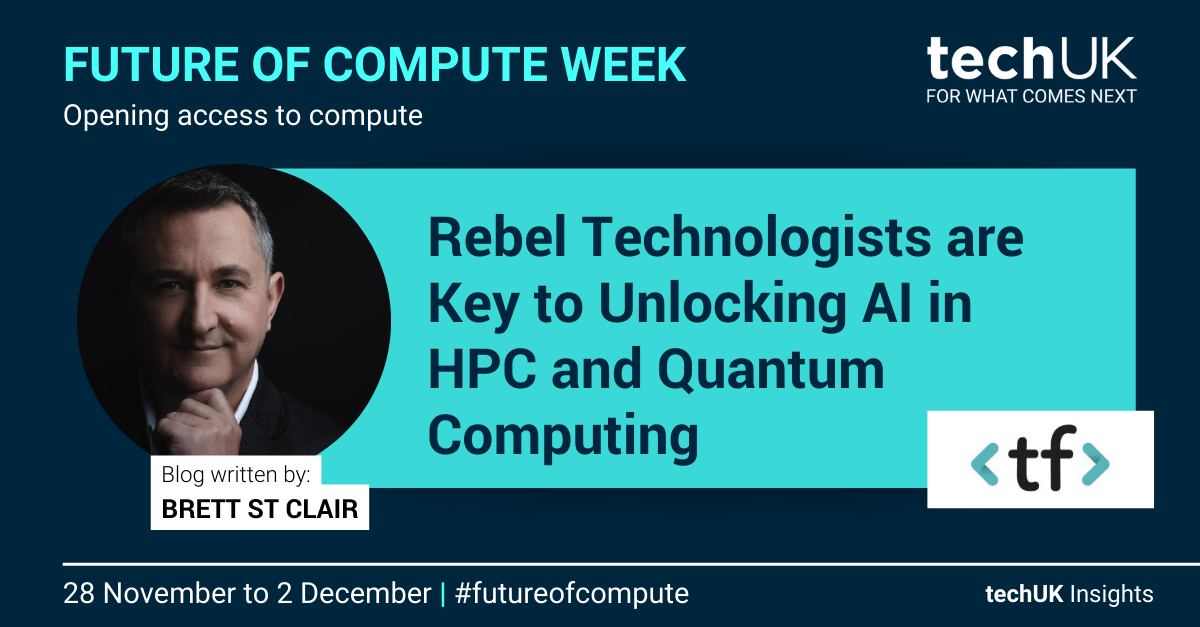Rebel Technologists Are Key to Unlocking AI in HPC and Quantum Computing

Data is exploding fast. And with it comes a number of challenges. The biggest being the fragmentation of data in large organisations. Hindering innovation and bottlenecking growth, the vast amounts of data from different sources and sensors poses a massive challenge to businesses around the globe.
It’s cataloguing the data and making it accessible to the teams and departments that need them that remains a constant challenge.
While there exists tools and architectures readily available to help improve our interactions with data, handling the exponential growth requires a delicate balance between compute capabilities and culture.
The ultimate goal? Improving data centralisation, accessibility, and the creation of reusable assets that can be used for gathering insights or building machine learning (ML) models. But that’s the technical challenge.
Data is exploding and stretching HPC capabilities
The size of data is exploding and society needs a more effective way to crunch these data sets.
Quantum computing and high-performance computing (HPC) is accelerating far beyond what we expected. To the extent that the industry is seeing a multiplying effect on compute performance.
The scientific community through the availability of HPC has managed to manipulate vast sums of data in very short time periods in, debatably, in more cost-effective ways.
This has allowed a number of industries to wrangle all of the different data sets at an exponential rate, allowing us to get better at bringing more efficient and sustainable models into production. However, until quantum computing reaches the right stage of maturity, the ability to compute high-volume, common models will be the next step for vast data sets beyond HPC.
The real challenge lies in how we shift culture
How do we enable change-makers in industry and organisations to take advantage of this technology, and more importantly, get a headstart?
It goes without saying that technology will move faster than human skill. The important question becomes how we change the culture. This is where the role of the rebel technologist becomes critical. Those individuals who are brave enough to stand up and acknowledge technology that is at the right point of maturity. But a rebel technologist is excited and curious about how to combine these technologies to add value into an organisation.
Take, for example, applying a quantum computer into the world of artificial intelligence. That vast computational power can be used to transform, centralise and process data at scale. To handle the massive amounts that we can expect data to reach.
Financial services are already testing the impact it will have on transactions. But as we start to measure the user journeys and the data points around a particular customer, those data points are beginning to explode and will only continue to explode.
The rebel technologist is the individual who has the grit to take on projects where industries can start sandboxing environments on quantum computers. To take small innovation teams and start testing various data sets and use cases. In fact, the use case is going to be the challenge. There are the obvious use cases, whether it be credit vetting in the financial institution or in stock exchanges trying to manipulate the best buying and selling price points. However, the data sets and the use cases are going to be far more advanced than that.
And so how do we figure this out?
We need individuals and teams that are open to trying, testing and failing. This needs to be a cultural practice not just in a business, but in an industry. The rebel technologist is always working to take on the big challenges. To find answers to the big questions. How do we solve every problem with some form of machine learning or some form of data solution? How do we scale the solution to these problems with Quantum computing? It becomes a cultural idea first.
It is a problem that needs to be solved with the right leadership in industry that is willing to share the mistakes and the lessons learned (Something that we need to get better at in the UK).
The secret to unlocking the power of quantum computing and using artificial intelligence and machine learning to make that a reality lies in the cultural adoption of this technology.
A culture hopefully being powered by a group of rebel technologists.

Rory Daniels
Rory joined techUK in June 2023 after three years in the Civil Service on its Fast Stream leadership development programme.

Ella Shuter
Ella joined techUK in July 2025 as Junior Programme Manager for Emerging Technologies.

Laura Foster
Laura is techUK’s Associate Director for Technology and Innovation.

Elis Thomas
Elis joined techUK in December 2023 as a Programme Manager for Tech and Innovation, focusing on Semiconductors and Digital ID.


